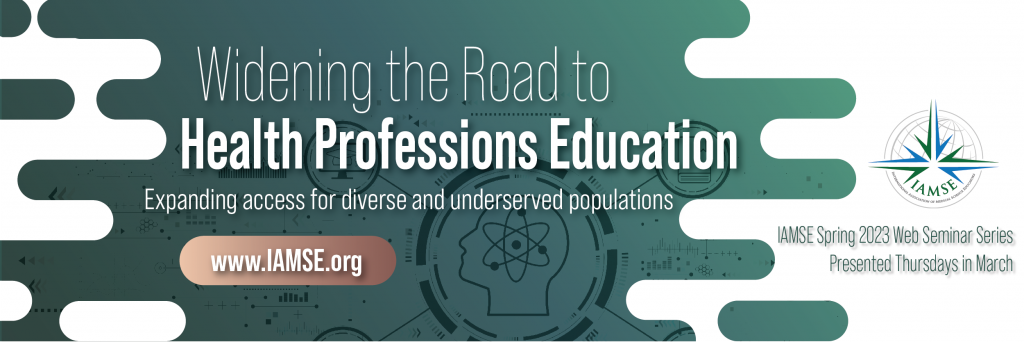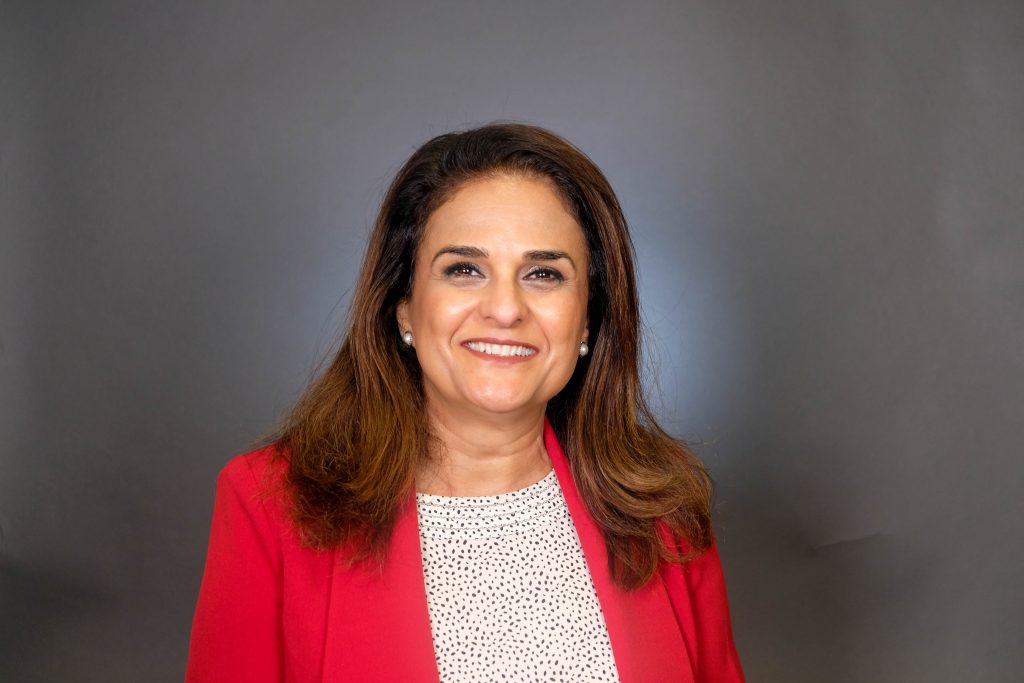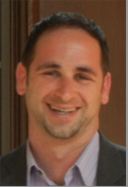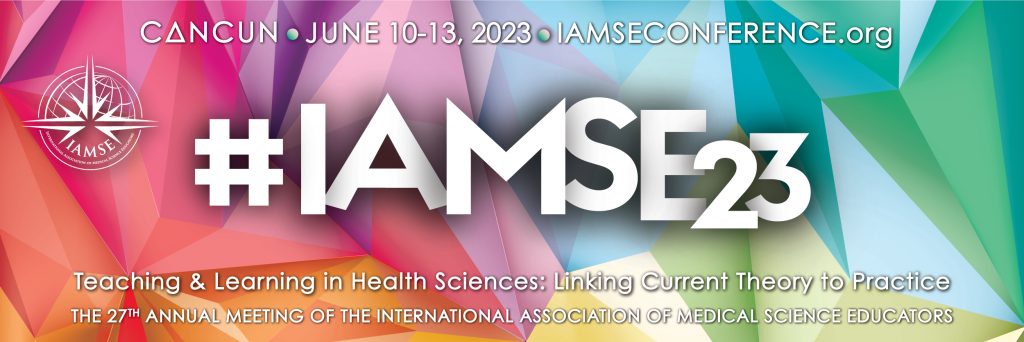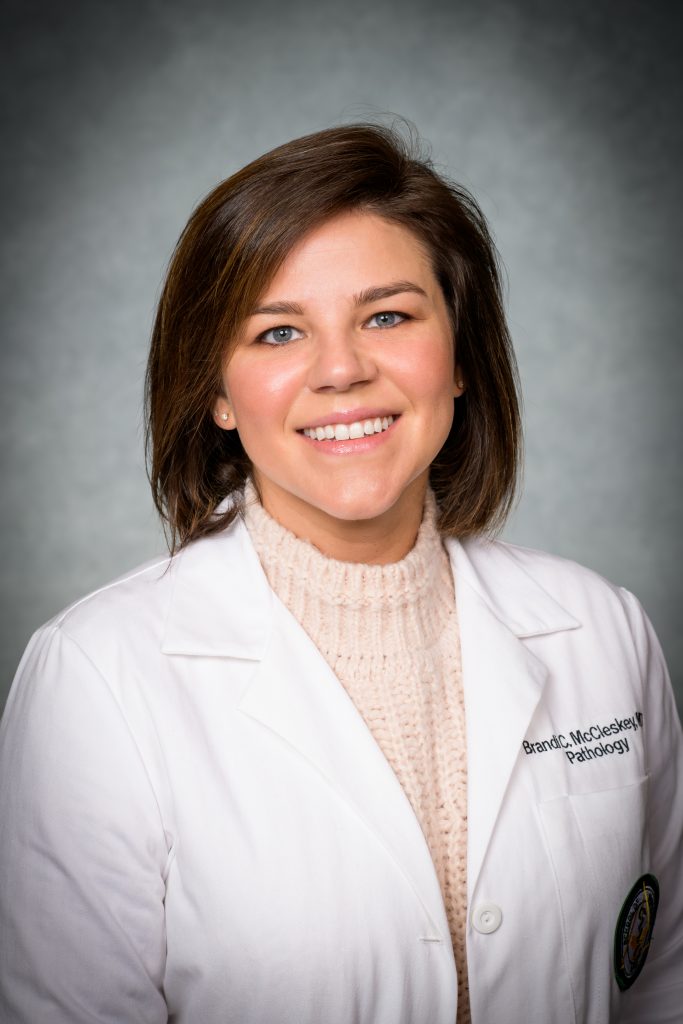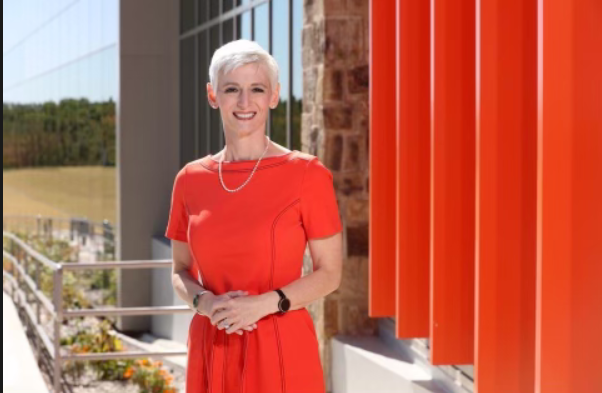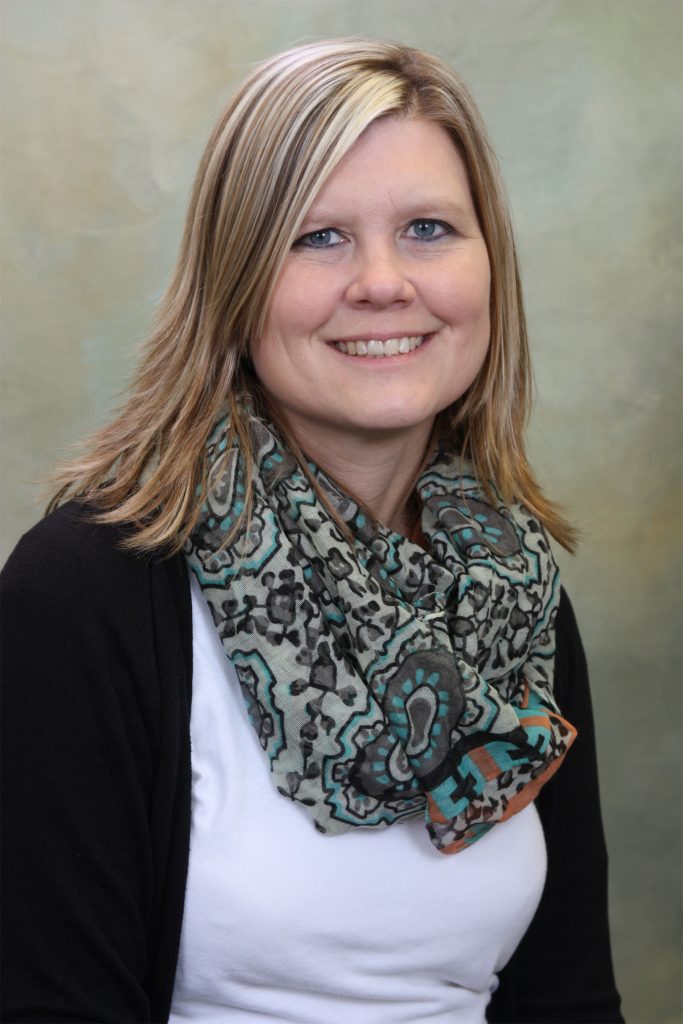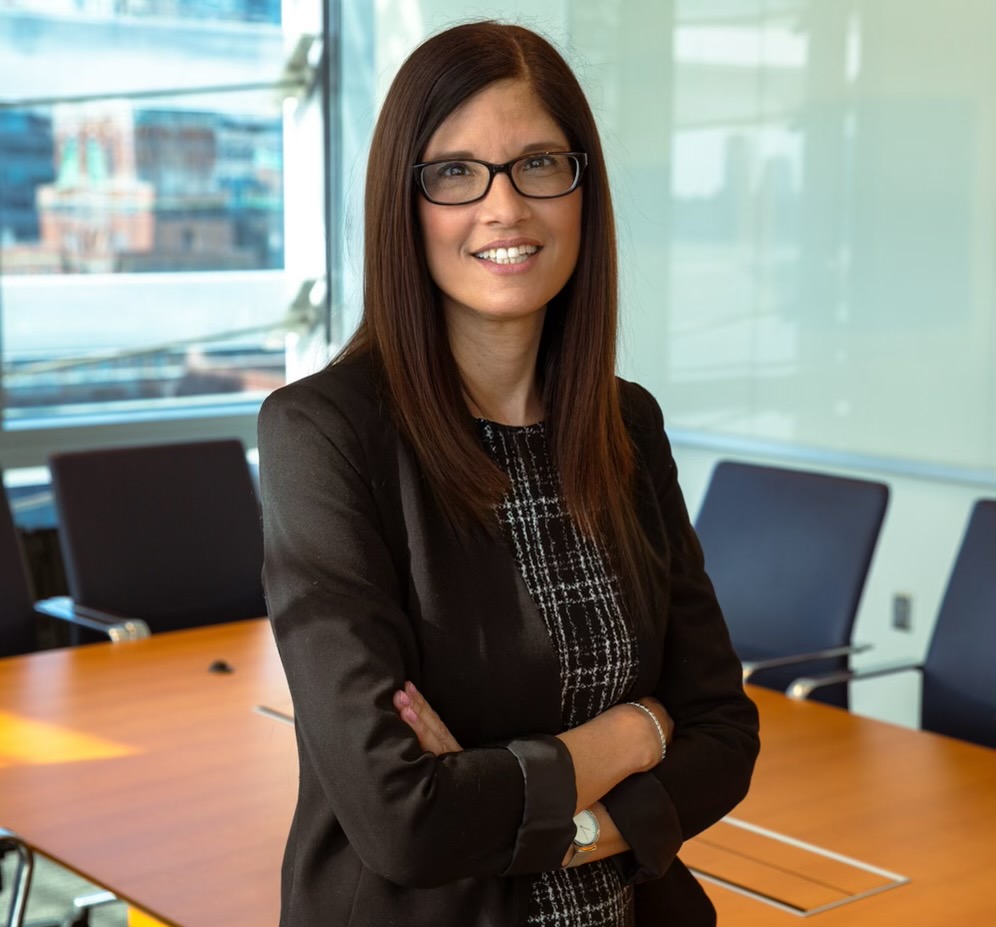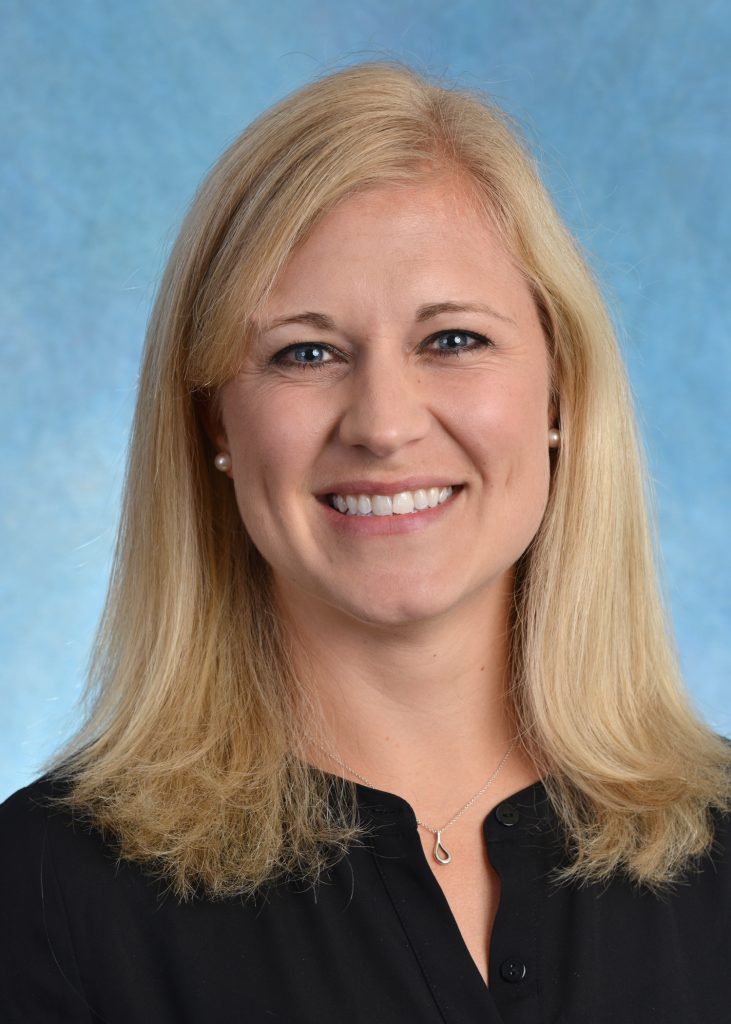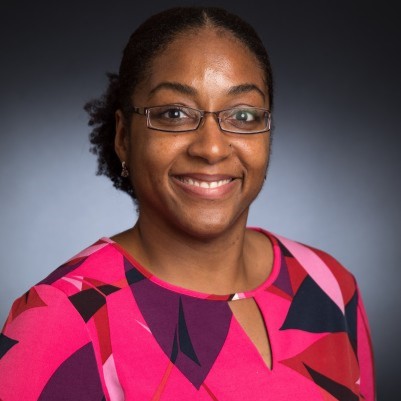[The following notes were generated by Andrea Belovich, Ph.D.]
Fostering Community Through Rural Pipelines and Pathways
The Spring 2023 IAMSE Web Seminar Series, “Widening the Road to Health Professions Education: Expanding access for diverse and underserved populations,” began on March 2nd, 2023 and concludes on March 30th, 2023. In this five-part series, experts and innovators share their practices in recruiting and matriculating students from underserved populations into health sciences programs and creating pathways for students to meet the unique needs of their communities.
The third session for this series, entitled “Fostering Community Through Rural Pipelines and Pathways,” was co-presented on March 16th, 2023 by Dr. Natasha Bray, Campus Dean of Oklahoma State University (OSU) College of Osteopathic Medicine at the Cherokee Nation and Associate for accreditation for the OSU Center for Health Sciences, and Dr. Machelle Linsenmeyer, Professor and Associate Dean for Assessment and Educational Development at the West Virginia School of Osteopathic Medicine (WVSOM). Together, these speakers presented information about pathway programs their institutions have implemented to increase awareness of health challenges experienced in rural, underserved, and tribal communities. They also emphasized the importance of recruiting physicians to rural and underserved areas of the United States and provided an overview of how their respective programs accomplish this by working with students across the educational continuum, residents, faculty, staff, and community members.
Dr. Bray began the webinar by presenting one of the pathway programs at OSU designed to train and recruit physicians to care for underserved populations in rural Oklahoma (OK), with a particular focus on training physicians to provide care for tribal communities in the state. To achieve this goal, OSU opened the first College of Osteopathic Medicine (COM) with a tribal affiliation, OSU-COM at the Cherokee Nation (OSU-COMCN), in 2020. To demonstrate the impetus for opening the new COM, Dr. Bray provided the audience with background about the health outcomes in OK, sharing compelling statistics about high rates of obesity, cardiovascular disease, and mental distress. Dr. Bray acknowledged that strategies to develop the rural and tribal physician workforce are both a multigenerational process and a long-term investment in the infrastructure necessary to address the physician shortage for underserved communities.
OSU-COMCN’s overall pathway strategy culminates in the “R3” program, which is designed to recruit Rural students to medical school, educate them in completely Rural environments, and place graduates of the program in Rural-based residency programs. By recruiting members of the target communities into medical school and conducting their medical education in rural environments, the program trains physicians that are more likely to practice medicine in rural communities.
Dr. Bray discussed several recruitment programs, some of which begin as early as elementary school and are intended to inspire children to become health care providers by providing early exposure to the health sciences. Programs aimed at recruiting high school students include the “Blue Coat to White Coat” program, which is aimed at members of the National Future Farmers of America (FFA) Organization, Dr. Pete’s Medical Immersion Camp, and Operation Orange. In particular, Dr. Bray focused on Operation Orange, which is a one-day camp for students in grades 8-12. Participants are able to meet medical students, learn about career opportunities in the healthcare field, participate in hands-on demonstrations including suturing and simulated intubation, and learn about anatomy with human brains, hearts, and lungs. Operation Orange is hosted both on the OSU-COMCN campus and in communities on tribal lands to increase access as much as possible.
OSU also utilizes pathway programs that support rurally recruited students through college. OSU helps these students prepare to be successful in medical school by pairing them with mentors early in their collegiate experience to help navigate classes and MCATs, as well as to prepare them for application, matriculation, and beyond. to medical school. Furthermore, OSU fosters an environment that is aware of rural/underserved populations, with different programs that support specific populations (like Native American students and other underrepresented minorities). Once students matriculate into OSU’s medical program, the rural training experience is further supported by OSU-COM’s Tribal and Rural Medical training tracks. During 3rd and 4th year rotations, these tracks (parallel training programs) provide carefully selected clinical, research, and leadership experiences in rural or tribal settings throughout the state to allow students to experience the social determinants of health that their future patients are likely to experience. For the Tribal Medical track, 85% of core rotations are conducted in tribally operated health centers, while core rotations in the Rural Medical track are conduced in critical access hospitals and community-based hospitals. Students are also required to do two audition rotations with primary care residencies based in those communities.
Dr. Bray concluded her portion of the webinar with an overview and outcomes of the rural and tribal affiliated residency programs in the state, including three Family Medicine programs and one Pediatric program affiliated with the Cherokee, Choctaw, and Chickasaw Nations. In total, there are 10 rural or tribal OSU-affiliated residency programs, with 157 available slots that encompass Family Medicine, Internal Medicine, Emergency Medicine, and Pediatrics. Data from the OSU Tulsa campus show that the vast majority (~80%) of OSU-COM students stay in the state of Oklahoma, with 80-95% of those graduates practicing primary care in medically underserved communities across the state.
Dr. Linsenmeyer then continued the webinar by presenting the pathway programs developed by the West Virginia School of Osteopathic Medicine (WVSOM). Like the state of Oklahoma, West Virginia (WV) ranks low in regards to health outcomes (47/50). Health factors common throughout the state include decreased life expectancy, opioid use, and industrial issues that occur that affect health outcomes (such as coal mining) in more desolate areas. Furthermore, nearly all counties in the state are primary care shortage areas. To address these shortages, it has been proposed to bolster the primary care physician pipelines, beginning in local communities and in high schools.
Dr. Linsenmeyer shared that WVSOM is nationally recognized for its efforts in addressing Rural, Family, and Primary Care medicine, as it is the top school in the nation in graduating students who practice in rural areas. WVSOM is also ranked 4th in the nation for percentage of medical school graduates who enter primary care residencies, with 69% of their graduates from 2018-2020 doing so. Part of WVSOM’s success is due to the various pipeline and pathway programs that target various levels of education in local communities. This includes programs that target high school students, such as Anatomy lab tours, summer camps that teach topics such as neuroscience and infectious disease, and CPR training camps. Programs that target college students include the Pre-Osteopathic Med Program (POMP), and bridge programs such as the West Liberty to WVSOM Bridge program, and the West Virginia Wesleyan Bridge “Go D.O.” program. WVSOM also has a “Green Coat” program that partners with rural hospitals to allow students to be immersed in those settings. In addition to high school and college programs, WVSOM also targets residents and community members with the Rural Outreach Program and the Center for Rural and Community Health.
Dr. Linsenmeyer next provided the audience with a close look at WVSOM’s Rural Health Initiative (RHI), which is a pipeline program intended to help train WVSOM medical students to practice in underserved communities across WV and support community involvement of West Virginians in health education. The RHI has approximately 14-18 students per class year, with additional events that are open to all WVSOM students. While all WVSOM students spend 12 weeks in a rural rotation setting, RHI students do extra rural rotations and are stationed at rural rotation base sites. RHI students and RHI pipeline students spend a total of 20 weeks in rural rotations during their third year and 8 weeks in rural rotations during their fourth year. In addition to gaining additional exposure to the needs of rural WV communities, RHI students are also assigned a practicing rural physician as a mentor, financial incentives (scholarships and sign-on incentives for WV residencies), and housing support that allows them to stay and live in rural communities during years 3 and 4. Additionally, the RHI promotes activities to promote rural research medicine, culminating in a Rural Practice/Rural Primary Care Day event. The RHI also hosts a Wilderness Medicine Rotation and four Industry-relevant activities per year that are open to all WVSOM students. Overall, in 2022, 100% of RHI graduating students reported increased or confirmed interest in practicing in a rural area.
Dr. Linsenmeyer then shared examples of the types of industry related activities offered by the RHI to acquaint students with the health impacts of major state industries (e.g., logging, mining, agriculture, etc.) to better understand the occupational diseases and environmental exposures common in rural West Virginian communities. Additionally, these events are used as opportunities for students to learn about the unique aspects of Appalachian culture than can impact health outcomes (such as folklore and home remedies), allowing them to better understand the needs, backgrounds, and motivations of their future patients.
One such example of these activities is a Coal Mining Simulation and Training event. This event simulates a coal mining accident and rescue and is conducted 5 miles inside a coal mine at a depth of 900 feet. Prior to the simulation, faculty, and industry personnel conduct classroom instruction for the students to familiarize them with background information relevant to the case and the equipment present in the mine. Dr. Linsenmeyer then showed a video of what happens during this event, reporting that it is very a popular experience. Additionally, Dr. Linsenmeyer described WVSOM’s Wilderness Medicine Rotation, which offers wilderness medicine experiences to students, residents, and community member such as firefighters, EMS workers, and national guard community members. Clinical and basic science faculty provide integrated education on topics such insect bites, altitude sickness, flight physiology, and cold-water immersion and drowning, and many more.
Impacts of the RHI include Rural Health advocacy at the capitol and exposing students to legislative processes to gain get a better understanding of how they can advocate for rural health initiatives. Other RHI program outcomes show that RHI graduates have high rates of retention as practicing physicians in WV, with 58% of RHI graduates from 2013-2018 who matched into WV primary care or emergency medicine programs starting practice in WV. Additionally, Dr. Linsenmeyer shared success stories of students who participated in WVSOM’s pipeline program that demonstrated the personal impact these programs have for graduates. Dr. Linsenmeyer finished the webinar with an exposé of WVSOM’s pipeline programs are targeted to residents and community members. WVSOM’s Rural Leadership Fellowship program is a 1-year program with about 10 residents per year and provides stipends to residents to attend training in their specialty. After completing their fellowship training, residents and return to share their training with in-house staff. Community oriented pipeline programs include global and national activities that involve all first responders in the community (fire, EMS, police), the National Guard, Airports and Life Flight operators to join residents, medical students and faculty/staff in various simulations such as automobile accidents and Mass Casualty events with standardized patients. WVSOM also partners with the International Mines Rescue Competition, with 27 teams from 9 countries competing for best rescue outcomes. Finally, Dr. Linsenmeyer shared various programs that allow WVSOM to reach out to the community and increase awareness of the health professions in grade school and middle school students. The Center for Rural and Community Health (CRCH) allows WVSOM students to participate in outreach activities for kids ages 6-11 (grade school and middle school), as well as the opportunity to be involved in several aspects of the community.
